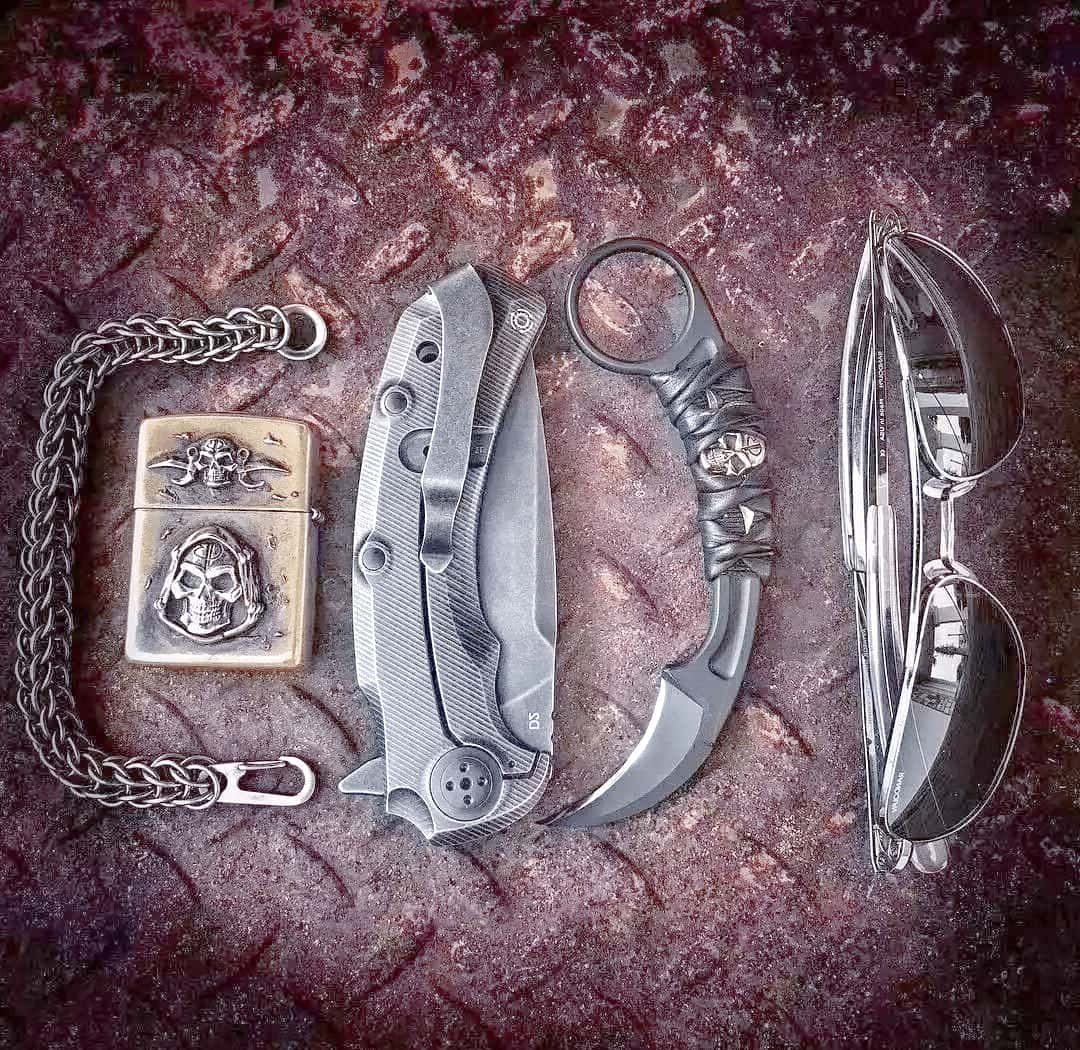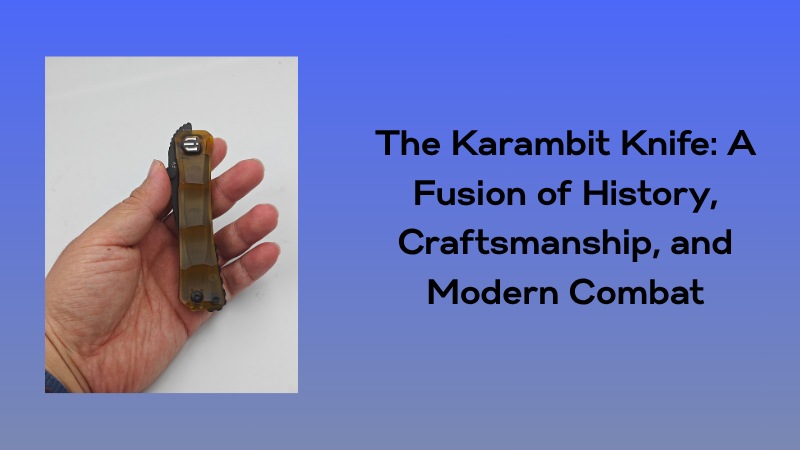
The Karambit Knife: A Fusion of History, Craftsmanship, and Modern Combat
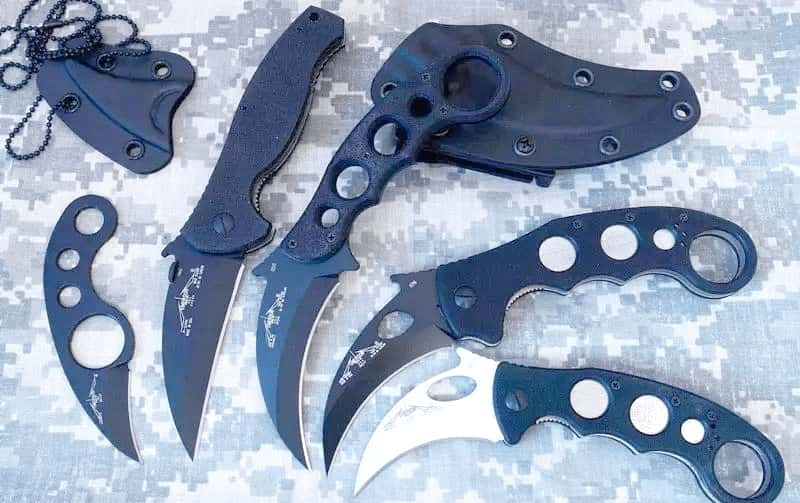
From its humble origins as an agricultural tool to its status as a revered weapon in pop culture, the karambit knife has evolved into a symbol of power, artistry, and practicality. This curved blade, inspired by the claws of tigers and steeped in Southeast Asian tradition, continues to captivate enthusiasts, martial artists, and collectors worldwide. Let’s delve into the history, design, and cultural significance of this iconic weapon.
Origins: From Farm Tool to Lethal Weapon
The karambit traces its roots to 11th-century Indonesia, where the Minangkabau people of West Sumatra designed it for harvesting crops. Its curved blade mimicked the shape of a tiger’s claw, a creature revered in local mythology. Over time, the tool’s potential for combat became evident, particularly in close-quarters fighting.
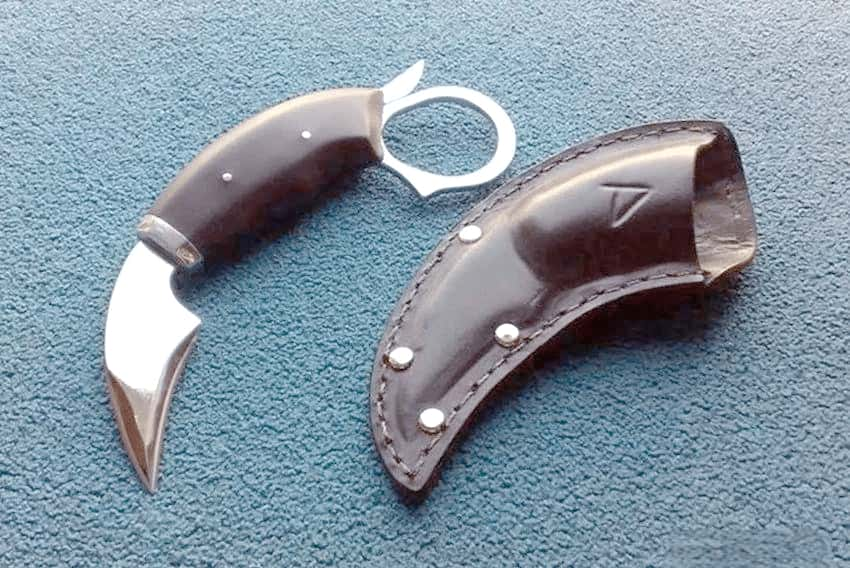
By the 19th century, the karambit spread across Southeast Asia, adapting to regional needs. In the Philippines and Malaysia, it became a self-defense staple, often linked to spiritual beliefs. Hindu influences further shaped its design, drawing inspiration from deities like Bhima and Hanuman, whose mythical claws symbolized divine strength.
Design: Anatomy of a Predator’s Claw
The karambit’s signature features make it instantly recognizable:
- Curved Blade: Optimized for slashing and hooking, the blade’s arc concentrates force at the tip, enabling deep, precise cuts.
- Safety Ring: A finger hole at the hilt ensures a secure grip, preventing slippage during combat.
- Dual-Edged Versatility: Traditional karambits often include serrated spines or blood grooves for enhanced lethality.
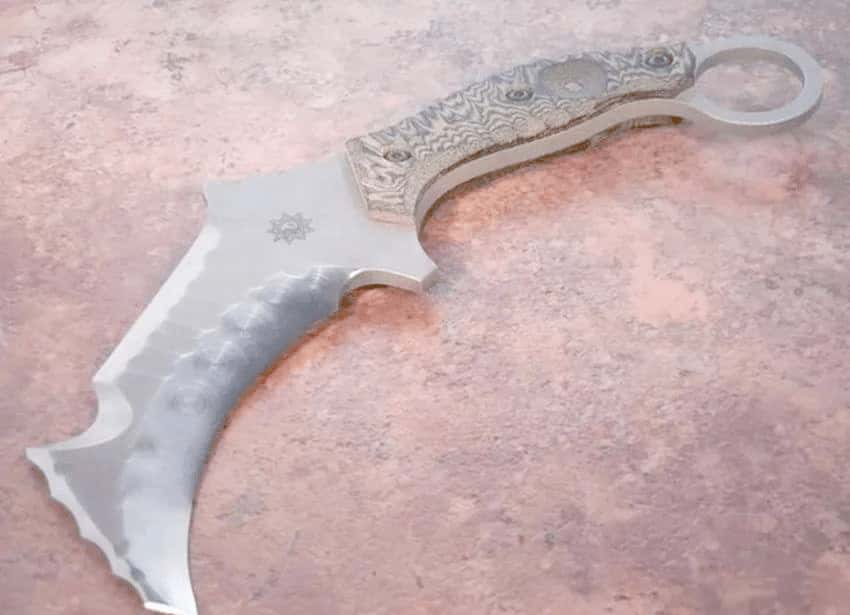
Modern iterations range from fixed blades to folding designs. Fixed blades, like the United Cutlery Honshu Karambit, prioritize durability, while folding models emphasize portability. Custom-made karambits cater to niche demands, blending aesthetics with functionality—think Damascus steel finishes or camouflaged handles.
Combat Mastery: The Art of the Claw
In martial arts like Pencak Silat, the karambit is wielded with precision. Its reverse grip allows fluid transitions between slashing, trapping, and disarming opponents. Key techniques include:
- Hook-and-Pull: Using the blade’s curve to incapacitate limbs or sever tendons.
- Spinning: Flashy "claw flourishes" disorient adversaries while maintaining control.
- Close-Quarters Efficiency: Ideal for targeting veins, arteries, or pressure points.
Despite its strengths, the karambit’s short reach and reliance on cutting (rather than thrusting) limit its military adoption. Yet, its compact size and concealability make it a favored tool for covert operations and civilian self-defense.
Cultural Impact: From Battlefields to Big Screens
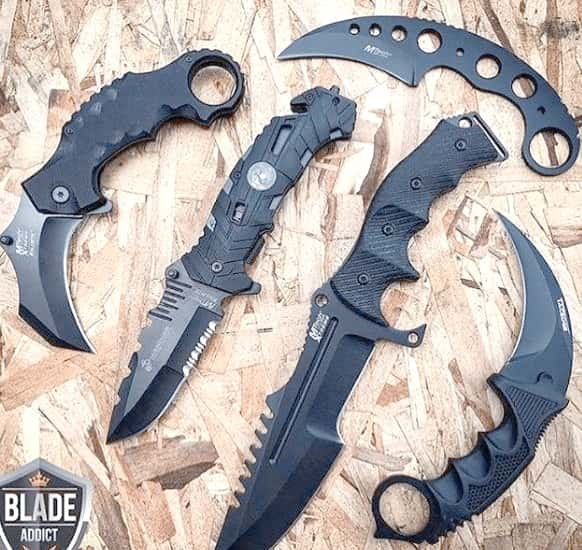
The karambit’s mystique extends beyond combat. In Indonesian folklore, it embodies the spirit of tigers, symbolizing courage and ferocity. Today, its allure permeates pop culture:
- CS:GO: The game’s karambit skins, like the Damascus Steel or Tiger Tooth, mirror real-world designs but command prices up to 1,200—�������������ℎ���1,200—farexceedingtheir35 real-life counterparts.
- Movies: In Wolf Warrior 2, protagonist Leng Feng wields a karambit with deadly flair, cementing its Hollywood appeal.
- Fashion: Women increasingly adopt miniature karambits as decorative hairpins or discreet EDC (everyday carry) items.
Crafting a Karambit: Tradition Meets Innovation
Forging a karambit is a labor of love. Traditional methods involve:
- Design Sketching: Balancing curvature, weight, and ergonomics.
- Steel Selection: High-carbon steel for edge retention.
- Heat Treatment: Tempering the blade to achieve hardness without brittleness.
- Handle Crafting: Wood, bone, or G-10 composites for grip.
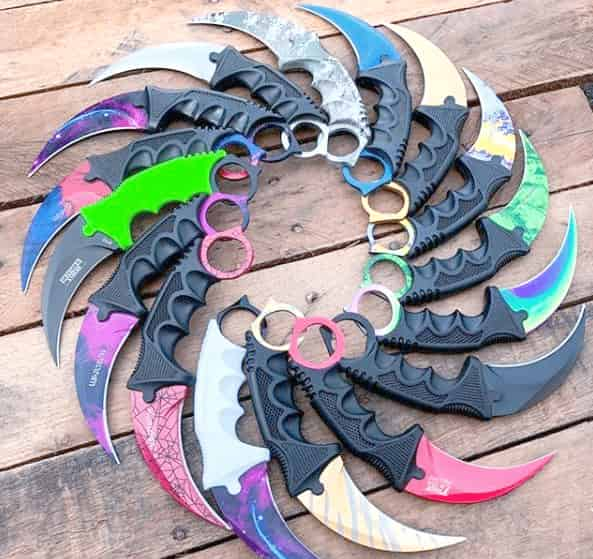
Modern DIY kits simplify the process, but purists argue that hand-forged karambits retain the "soul" of the weapon.
Why the Karambit Endures
- Versatility: From farming to combat, its adaptability is unmatched.
- Aesthetic Appeal: Sleek curves and intricate engravings attract collectors.
- Psychological Edge: Its menacing design deters potential attackers.
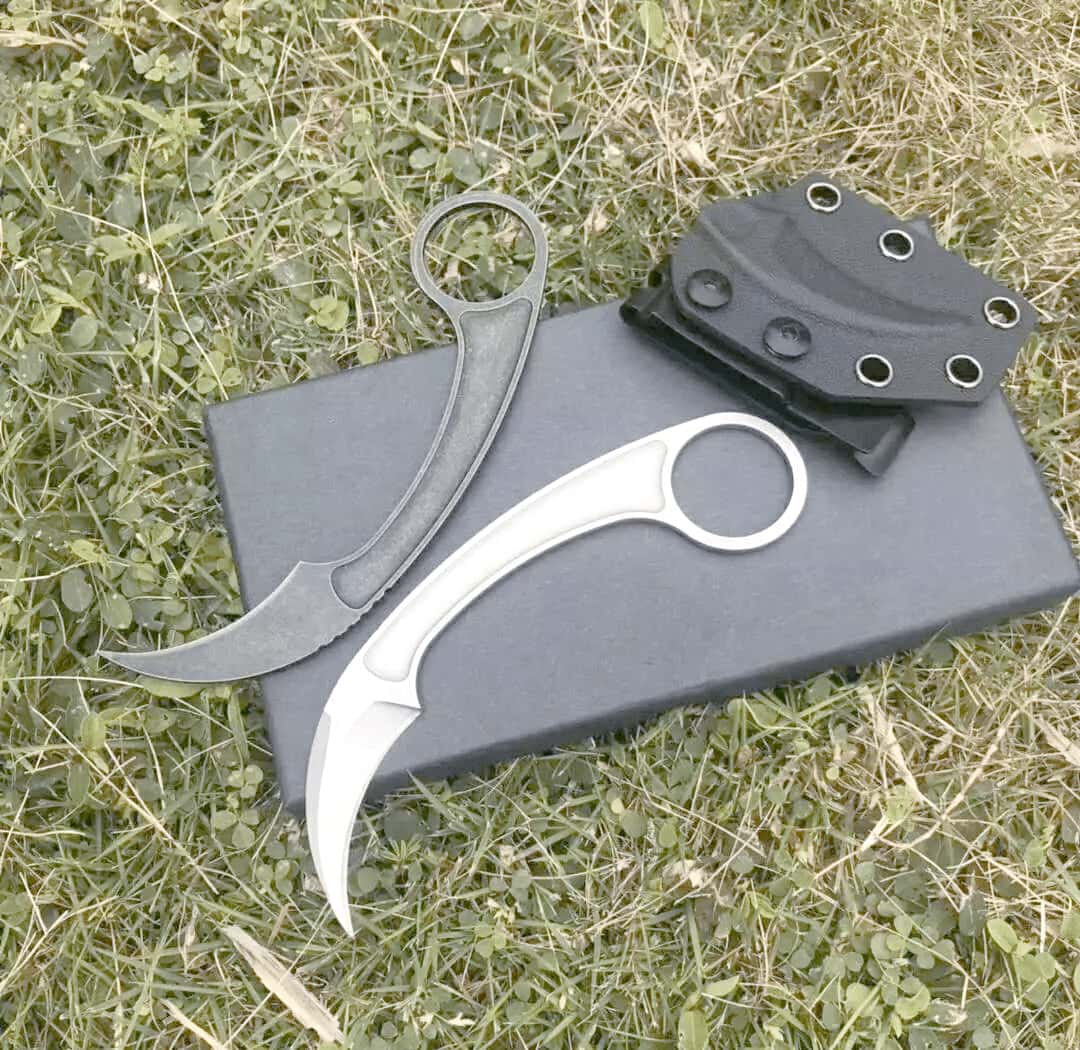
While some dismiss it as a "mall ninja" accessory, the karambit’s legacy as a tool of survival and artistry remains unshaken.
Choosing Your Karambit
For beginners:
- Folding Models: Spyderco or Cold Steel offer affordable, portable options.
- Fixed Blades: Ideal for martial arts training (check local legality).
- Custom Designs: Seek artisans for personalized engravings or materials.
Conclusion: The Eternal Claw
The karambit knife is more than a weapon—it’s a bridge between ancient traditions and modern craftsmanship. Whether you’re drawn to its history, combat efficiency, or sheer beauty, the karambit invites you to wield a piece of living heritage. As it spins in your hand, remember: this claw has survived centuries, and its story is far from over.
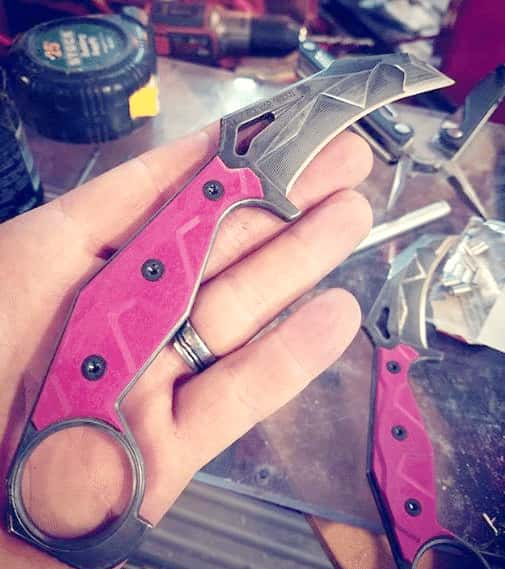
Explore our curated collection of karambits and master the art of the claw today.
At Shieldon Knives, we honor the karambit’s legacy while pushing the boundaries of modern craftsmanship. Our dedication to precision engineering and tactical innovation is embodied in our Shieldon Scythe XL (DC01D) and Shieldon REV (DC02A) models—two standout karambit-inspired knives designed for enthusiasts who demand reliability, style, and performance.
The Shieldon Scythe XL redefines tactical EDC with its Pikal-style blade forged from 154CM steel, a premium material renowned for its edge retention and corrosion resistance. Paired with a vibrant red G10 handle, this knife combines rugged durability with ergonomic comfort. Its black stonewash finish ensures a low-profile appearance, while the ambidextrous wire clip and caged ceramic bearings enable smooth, rapid deployment. The nested liner lock mechanism guarantees safety during high-pressure scenarios, making it ideal for both self-defense and everyday utility.
For those seeking cutting-edge versatility, the Shieldon REV elevates the karambit experience with a diamond-like carbon (DLC) blade coating and an amber PEI handle, offering unmatched grip and aesthetic sophistication. Designed in collaboration with DC Blades & Auxiliary Manufacturing (USA), the REV features a nested frame lock and dual deployment options—front flipper and detachable thumb stud—catering to both traditionalists and modern tacticians. Like the Scythe XL, it boasts a 154CM steel blade hardened to 58-60 HRC, ensuring longevity even under rigorous use.
At Shieldon, we understand that a karambit is more than a tool—it’s an extension of your instincts. Our knives undergo rigorous quality control, from heat treatment to ergonomic testing, ensuring every detail aligns with the demands of martial artists, collectors, and EDC enthusiasts. Priced competitively at $80 (ScytheXL)and $84 (REV), these models deliver premium craftsmanship without the custom-knife price tag.
When you choose Shieldon, you’re investing in a legacy of innovation. Explore our Scythe XL and REV on our website, where detailed specs, high-resolution images, and customer reviews await. Whether you’re drawn to the Scythe’s bold design or the REV’s adaptive functionality, Shieldon Knives guarantees unmatched quality—backed by a satisfaction promise that lets you buy with confidence. Join thousands of satisfied users who trust Shieldon to deliver excellence, one precise cut at a time.

